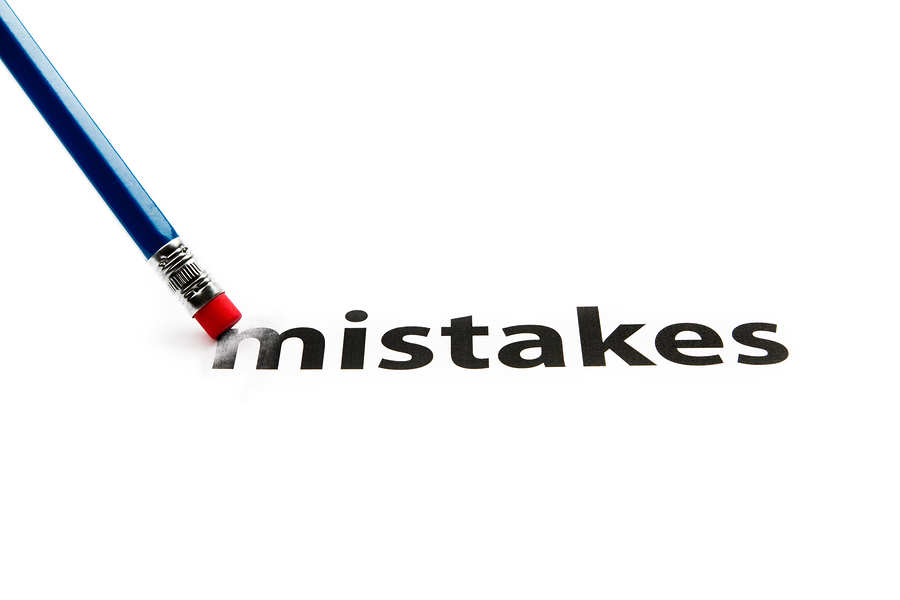I recall a television advertisement a few years ago touting a company as “#1 in Chicago.” After seeing the ad a few times, I focused on the fine print at the bottom of the screen and noted the claim was based on a “company conducted internet survey.” I started to feel some skepticism at the validity of the “#1” ranking.
Overselling a product, service, store, company, movie, church, theme park or park district pool can come back and haunt you. Setting the bar so high in an attempt to stand apart from the crowd is rarely effective long term, or short term for that matter, especially if whatever is being sold doesn’t really deserve the high praise.
Similarly, unbridled enthusiasm for their book can lead authors and publishers into the same world of overselling.
Promoting and selling Christian books has the additional element of God’s truth in them, which can dramatically impact a reader’s life. But while God can use anything to accomplish his purpose, no book ever written by a human can claim to have the kind of eternal impact of the Bible.
“This book will help millions achieve their highest aspirations. It will change the world!”
Must be pretty special writing.
But the reverse of overselling is underselling, which could end up becoming rather unappealing.
“My book will help several people inch a little closer to figuring out an answer to the problem. Maybe. I could be wrong. Don’t get your hopes up.”
Can’t wait to read this one.
For those involved in marketing Christian books and authors who promote their own work, the landscape is a dangerous minefield.
While every instinct within the “promoter” wants to communicate a particular Christian book as the most important ever written on a certain subject and will change the world, the truth is more along the lines of the book will “help many people inch a little closer to God.” Maybe thousands if God so desires.
So what is an author or book-promoter to do?
In the description of your work, use as few adjectives and adverbs as you can. The believability of any message decreases the more frequent they are used. Even in objective endorsements or reviews, too many adjectives and adverbs can make a book unreal at best or worse, deceptive.
To claim your book is the best ever for anything, is not true.
To claim your work is more important than anything prior exhibits an acute lack of knowledge for the rich history of books and literature.
Claiming something as “unique” is also untrue. With almost a million books published in the United States every year (traditional and self-published) are you suggesting none of them are even close to yours? This is simply not true. There may be hundreds or thousands of new books in the same vein as yours, competing for the same reader.
A few weeks ago, I mentioned readers buy a promise, a solution to a problem, a special experience or a key to unlock something within them. Use one or more of these when writing your promo copy…a promise, solution, experience or key takeaway. How will a reader benefit?
Instead of adjectives and adverbs, focus on “key words” which fuel the online search for your book. (This is an important issue, be sure to spend some time learning about it.)
To conclude, it appears I suggest a rather non-creative, facts-only, bland method of promoting.
Quite the contrary.
Layered atop all this is the most powerful promotional message of all…the genuine, glowing review by a reader.
The most effective promotion is when someone who is not the author (or related to the author, or works for the author) tells the world the book they read encouraged them, gave them a memorable experience or helped them realize something of importance.
Patting yourself on the back looks strange to others and hurts your shoulder joints. Let others do the patting, replete with well-chosen adjectives and adverbs. Those kinds of compliments are from the heart and other readers know it.



 Should You Hire a Freelance Editor?
Should You Hire a Freelance Editor?

This is so great and helpful! Thank you, Dan.
Solomon also wrote, “There is nothing new under the sun.”
Oh, no. they are on to me…
Ah, yes, we’re on to you. But at least you quote from the best!
Overselling is often lying, or at best deceiving. We are better off to speak truthfully about our work. It is what it is. If it is great, then say so. If it is mediocre, say so and rework it.
Your post reminded me, almost immediately, of the new Sprint commercials where the “can you hear me now” guy is hinting at coverage but then subtly shifts gears and says, “because all the major networks are now within one percent of reliability.” Wait, we were talking about coverage area, not reliability.
Be truthful. And be transparent. Otherwise it is like “embellishing” a resume. That’s likely to come back and bite us on the hiney.
Damon, mediocre isn’t always bad. Look at the Avco-Lycoming O-360 light aeroplane engine, which has been around for over fifty years in one form or another.
It’s a four-cylinder horizontally opposed air-cooled motor that looks like the one in the peace-sign-bedecked VW van your older brother used to drive in college. Appearances are not deceiving; the engines are brothers.
The O-360 draws just 180-200 hp from its 360 cubic inches (it’s no torque monster either), and the tolerances would make a dirt-track engine builder weep.
As an example of engineering prowess, it’s a nonentity. But it’ll run 2000 hours between overhauls (that’s a year of 8-hour days), and do so spending most of its life at 75% of its rated power without complaint.
We can put together engine packages that are so far ahead of the O-360 that it’s not even funny. But I have the feeling that one day, those will be consigned to museums and scrapyards, and the 360 will still be chugging along.
Kind of like the old joke that when the USAF flies its last C-17 to the boneyard at Davis Monthan, a DC-3 will be sent along to fetch back the ferry crew.
Rebekah, I am so honoured. Your middle name is no accident.
Having been a sometime sheet-metal worker, I always looked askance at a book or film that was described as ‘riveting’.
The process of riveting is about as mind-numbingly dull as driving nails.
Love this!
Right on!
Your post raises a question about using reviews of prior work to help agents and editors gauge quality and market potential of an author’s latest.
I’ve seen that only my “verified purchase” reviews at Amazon have been picked as helpful by other readers, probably because that labels them as “objective.” From one verified purchaser of book 2, I got the following: “I absolutely loved this book! It is one of the best, if not the best historical Christian romances I have read.” When a published author pitches a future book, would it be appropriate to include such a review of their last book and would it increase the odds that you would ask for a full manuscript? If so, where in the proposal is the most appropriate place to include reviews of your earlier work to demonstrate likely reader response to the newest?
It is appropriate to include an objective review from reader. Identify it as an Amazon review for whatever book it was given.
Put it early in the proposal…after the summary of the new work, maybe label a section, “Reader reviews from previous Carol Ashby titles…” and list a few of the best, mentioning the title they relate to and from where they came.
It frees you from needing to say, “I am a good writer.”
Words of wisdom once again, Dan. Thanks for the blog. It might slap me down a bit to think that my books are less than the greatest, but that’s not a bad place to be. A little humility is a good thing.
Great advice, Dan.
Enjoyed this post, particularly your visual point, “Patting yourself on the back looks strange to others and hurts your shoulder joints.” So true! But I do struggle with understanding how we as unpublished writers, in these days of self-promotion, follow Phil. 2:3, ” Do nothing out of selfish ambition or vain conceit, but in humility consider others better than ourselves.” How can we do it well before getting published and having those readers to praise our pages? It is terribly awkward to toot our own horns when we create bios for our blogs and proposals and pitches, when we have to put ourselves out there to ask to speak in groups, and when we win contests and waves flags over social media in order to garner attention. It feels so contradicting to write for the Lord all the while having a bio that screams, “Pick me! I’m the most humbly awesome human around, guaranteed to sell you publishers millions with my very humbly awesome works.” Hopefully I’m not alone in this struggle to find a God-approved ground.
So good, Ms. Ferguson. You are not alone. I cling to the promise that “Faithful is He that calls me, Who also will do it.” He’ll show us how to walk with Him by the moment, and I have to believe those doors will open when they should. Around here, those doors are shut tight for the moment ~ and with my full plate, that’s a relief!
God bless! 🙂
I agree with all that is said, though it does leave me in a bit of a quandary….
I think most people would agree that Schindler was more than just inspirational. To those whose lives he saved, he was indeed a saviour.
My book is about a gentleman in Uganda, who has raised himself from life as a ‘street kid’ abandoned and unwanted at 3 years of age; to be the saviour of hundreds of ‘street kids’ for whom he provides care, affection and an education. I would struggle to describe him as anything other than an amazing man, with the most impressive determination to help children in his country overcome adversity.
Other than by superlatives, how else might I impress upon potential readers that he is indeed a man above most others?
Actually, the description of your book sells itself. When the simple description creates interest, there is no need for superlatives. If you used them, it would actually “deflate” the book in my opinion.
Just tell the story and the readers will provide the descriptive energy.
That’s most encouraging. Thank you, Dan. Profits from the sale of the book will go towards supporting the children in Stevens care, so I need to make the story as engaging as possible!